CODE Sports Investigations: Australia’s dangerous steroid culture is laid bare as manufacturers target youth
Supplement researcher Moodi Dennaoui has revealed children as young as 15 are taking steroids twice a day. We reveal the tragic impact of Australia’s lethal supplements culture.
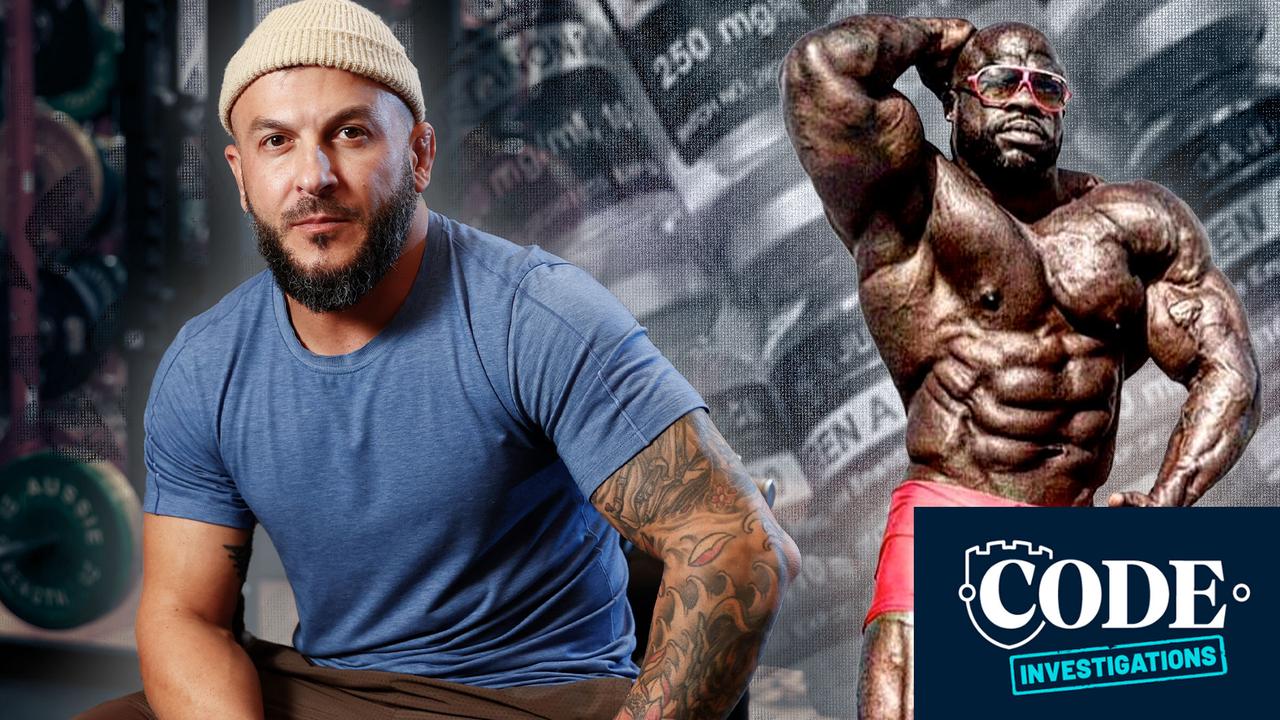
Certain supplement manufacturers are essentially conducting science experiments on users in a bid to capture a young market obsessed with looks in order to boost profits, according to an expert insider.
Hiding behind confusing labels and lax regulations, supplement companies have increased the dosage of popular workout powders from 80 grams of caffeine a scoop a decade ago, to 350 grams today, while marketing it to young people who have never had a sip of coffee.
Among a raft of bombshell revelations by supplement researcher Moodi Dennaoui are that children as young as 15 – some in professional rugby league systems – are taking steroids twice a day.
Dennaoui has former clients who are now infertile because of performance-enhancing drug use and in one case, a fitness model who used a steroid who did not get her period for nine years.
Health problems among young fitness fanatics are being exacerbated by an extremely dangerous Tik Tok trend called “dry scooping”, where supplement powders are consumed dry for faster effect.
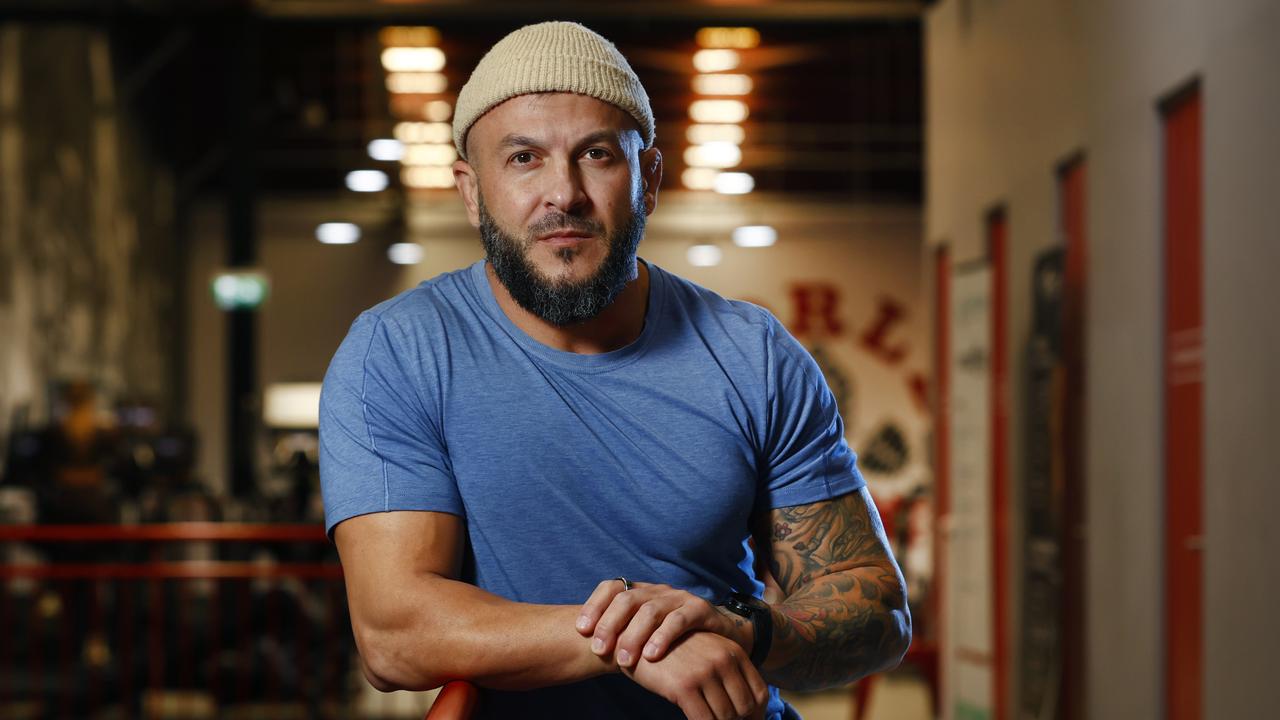
Dennaoui – who has worked in the fitness and nutrition industry for more than 20 years – has witnessed people collapse in the gym from taking too much pre-workout supplement.
“And what these kids are doing also, which didn’t happen when I was coming up into the scene, is they won’t even dilute it in water,” Dennaoui told Code Sports.
“So the pre-workout, the 300mgs of caffeine won’t be diluted in water the way it should be so that the body can assimilate it at a rate that is steady and it doesn’t hit you like an uppercut. But you’ve got influencers online who are showing kids, and they’re jacked, taking these pre-workouts dry.
“They’ll take the scoop of pre-workout dry and then wash it down with water afterwards.
“Apparently they do that so that it can hit you a lot harder.
“If they’re taking dosages that are that large and they’re being desensitised, then they’re going to need more and more and more, such as the example of them taking it dry to enhance the effects of how it hits them. Because 350 milligrams is not hitting them the same way with water so they’re starting to take it dry and washing it down with water so it hits them harder.
“So what’s next, intravenous pre-workout? When does it stop?”
HOW SOCIAL MEDIA IS BRAIN WASHING KIDS
American bodybuilder Chuck Kirkendall, known more commonly as “Kali Muscle” with millions of social media followers, was one of the highest profile proponents of “dry scooping”.
Kirkendall nearly died in 2021 following a heart attack that required emergency surgery.
A major issue, not only with dry scooping but the consumption of supplements in general, is that it is impossible to determine what is in them.
Dennaoui, hired by one of the biggest supplement manufacturers in Australia to research combinations of ingredients and their effects, explained: “My background is in research, my postgraduate studies are in research methodology in particular, the first thing that stood out to me was the lack of transparency.
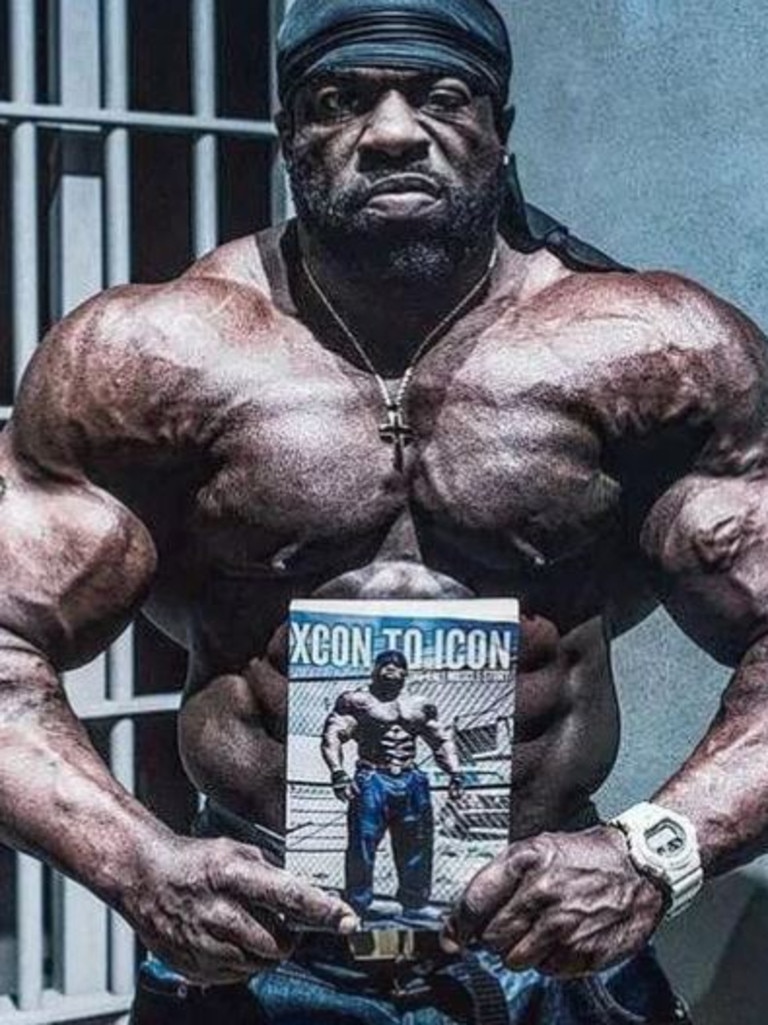
“So a lot of these companies are hiding behind what’s called proprietary blends, and they’ll hide behind a blend and say, ‘OK, by law, I don’t have to disclose what’s in this blend, because then you may go and make a similar supplement and then therefore be my competition’, which is not the way that we should be looking at things.
“If we’re transparent with the consumer, that creates a bond, that creates rapport and that creates trust that didn’t exist in almost every supplement company that I was looking at when I was looking at creating a benchmark of homeostasis of where we need to be, as in the company that I was working for.
“They’ll come up with names that involve the active ingredient from, say, four different compounds. And that name doesn’t exist in the English dictionary, but it’s a representative, like it’ll be a Nitrix proprietary blend, right? What is Nitrix? It could be anything. It could be a nootropic. It could be something that increases nitric oxide in the blood. Who knows?
“And the other thing is that even if they are disclosing what’s in the proprietary blend, they’re definitely not disclosing how much of each ingredient is in the proprietary blend. So you’ll have no idea.”
And then there’s the supplements sold behind the counter at gyms and health stores that contain amphetamine.
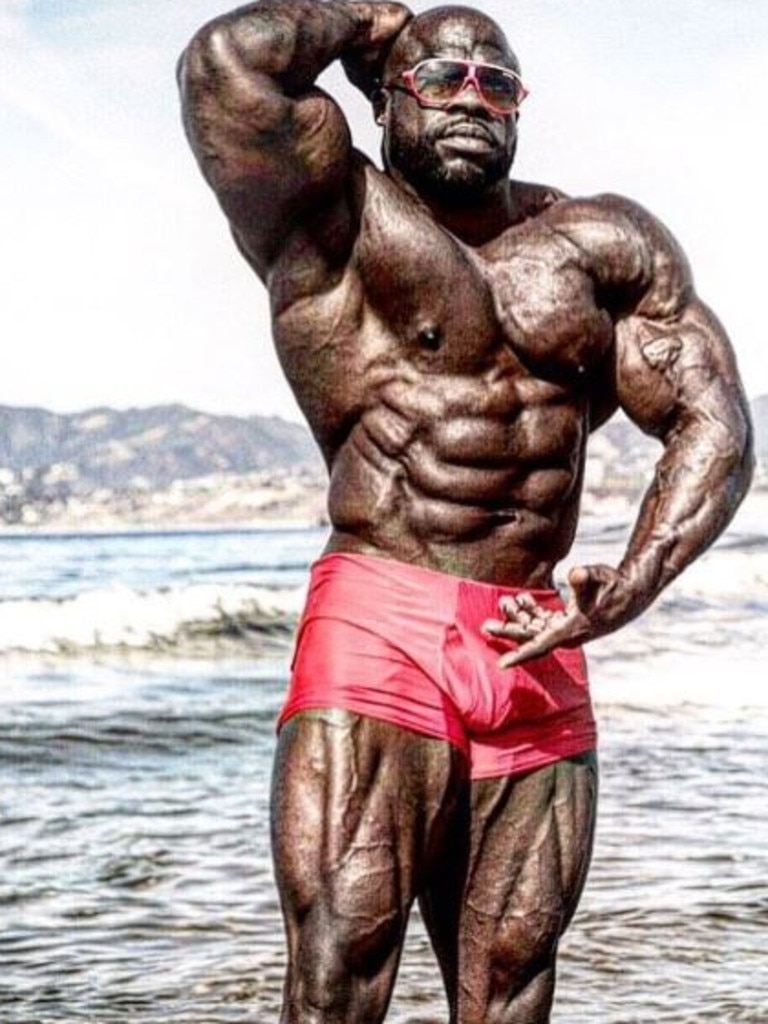
“Some of the pre workouts, which you can get maybe not blatantly over the counter, but they’re still very readily available, have something called DMAA (Dimethylamylamine), and that’s just a derivative of actual amphetamine,” Dennaoui said.
“It’s a banned substance, but it’s still being used by a lot of supplement companies in their black market sort of label. So they’ll have a label that is readily available, and then they’ll have like the creme de la creme type of option for each supplement.
“So they’ve got their regular test boosters, which are legal over-the-counter, like a tribulus (a testosterone), then have something that’s called a pro hormone, which is almost like seeing an endocrinologist and getting hormone therapy prescribed.
“And some of these pro hormones require a start and stop duration. So you have to go off and on like you would with steroids.
“Most supplement stores will have a range of supplements that they cannot display on the shelf because of those reasons, because it’s either got DMAA in it, because it’s got some things that will increase your testosterone levels to ranges that are outside the healthy parameters or the healthy ranges they do present in the results of blood tests.
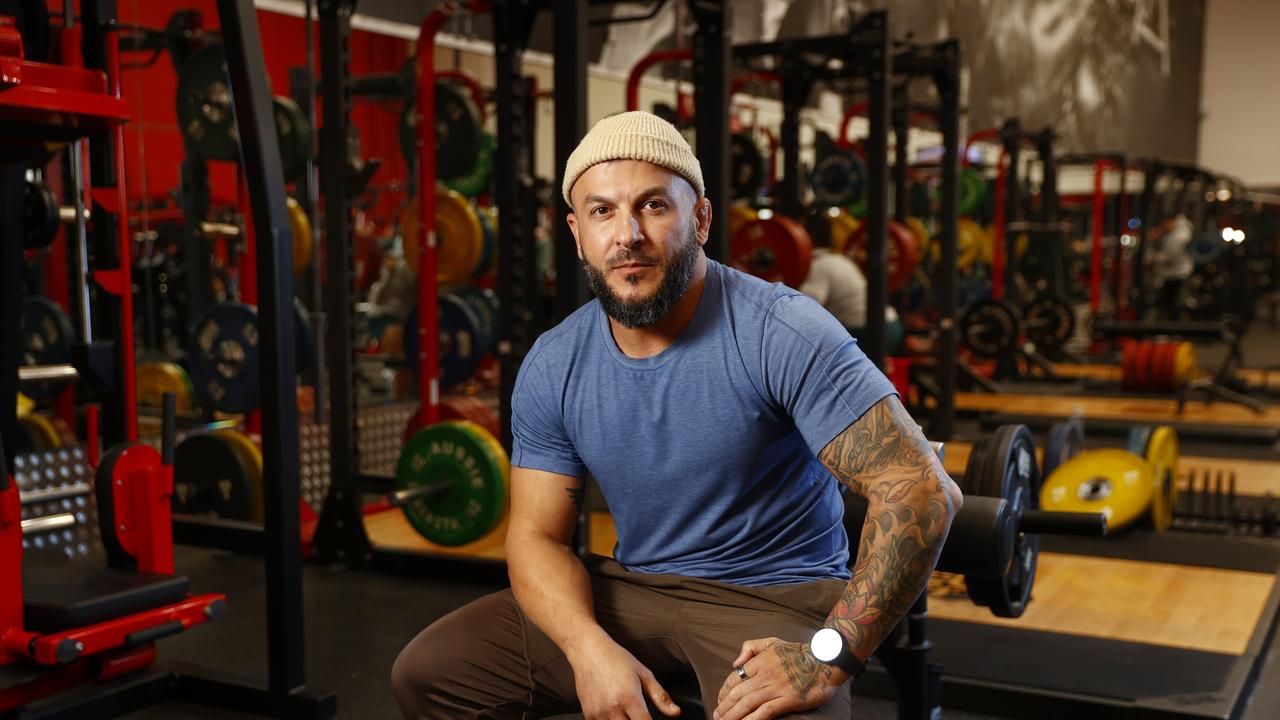
“So they’ll have them as a secondary stream of income almost. And they sell really, really well, if not better than what they’re displaying. So that stuff is usually behind the counter and some supplement stores will go as far as blatantly offering steroids.
“It’s not just black market supplements, it’s also a gateway to performance enhancing drugs.”
And the target market is now young wannabe Instagram and Tik Tok stars who have yet to physically mature, but want the physiques of seasoned bodybuilders and models.
TARGETING YOUNG PEOPLE
“Most of the time it’s the younger fellows and the younger women – the girls are all over this as well,” Dennaoui said.
“They approach it very aggressively because there’s platforms where you can display your progress online. You’ve got Tik Tok, you’ve got Instagram.
“Those platforms have created an avenue of comparison for these kids. And they compare a lot. They’re training, they’re taking photos and videos while they’re training.
“The companies that are making pre-workout in a tub with 300mgs of caffeine per scoop are now available in a soda type can, that’s very attractive, very colourful.
“And this energy drink is not actually an energy drink. It’s a pre-workout with 300mgs of caffeine, 1000mgs of taurine and a whole bunch of other amino acids that magnify the effects of caffeine.
“These kids are having them before they go to school, by recess they can’t keep their eyes open and they’re getting absolutely nothing done for the rest of the day. Not to mention that they’re not eating either because it’s suppressing their appetite.
“I’ve walked into workshops and I’ve had kids ask me outright, ‘How much of this particular steroid should I take?’ and I’m talking about 15 year olds.
“That wasn’t accessible when I was a kid. It was it was unheard of. ‘How much of the steroid should I take? How much of that steroid should I take?’ And if I respond like I did, ‘Absolutely not, you shouldn’t take any of it’, they would get frustrated.
“On one occasion I had a kid, a child come up to me saying, ‘OK listen, you’re not going to tell me how much to take? I’m going to be black and white with you. I’m on this particular steroid, I’m taking these tablets. Should I stick to four per day or should I increase it to eight per day or reduce it?’
“Now, the level of shock that you’re in when you get asked this question doesn’t allow you to respond immediately. It’s very difficult.
“They’re comparing themselves to their peers, so they want to be buff and jacked and lean and ripped at an age that’s getting younger and younger.
“The comparisons that are made on social media are very apparent and it’s very readily available, so the benchmark of what is the norm is not normal anymore.
“So if you’re walking around at 15 years of age and you’ve got a little baby fat on you, that’s no longer acceptable, you should have a six-pack at 15, according to these kids.
“And they’ll do anything it takes to be the best in terms of appearance when it comes to their posting on these social platforms, they’ll do whatever it takes. If it means taking more supplements, if it means taking PEDs, performance enhancing drugs.
“I’ve asked them, ‘How do you even access them at your age?’ A lot of them will not just buy them from the supplement stores, they’re more likely to get them off their elder siblings than they are to get them from supplements stores, you know big brother’s not going to notice if a few of his tablets go missing, so they’re more likely to go down that path, orals especially in comparison to injectables.”
LETHAL AND FATAL REPERCUSSIONS
Dennaoui fears that a generation of body-obsessed teens will flood our hospitals in years to come with severe health issues.
“I’ve seen the horrors that it’s done to people. I’ve been in the gym for probably three decades and what I’ve seen steroids due to individuals, from creating auto-immune diseases, from kidney failure,” he said.
“Some of these people that I bump into I used to actually teach when they were kids as a maths teacher in the past, and some of them have had multiple heart attacks by the age of 28.
“Dermatological issues, skin problems, an array of issues. There are some of them unfortunately, that I found out during COVID that have actually passed away. I cannot say that it is the steroids per se. But it’s a combination of elevated heart rate, blood pressure, poor body temperature or physiological systems that keep you in check are going haywire, and at the same time, you partying on the weekend. It’s a recipe for disaster.
“So their likelihood of a stroke or heart attack is just magnified.”
A former bodybuilder who works with Australian Olympians, NRL and UFC stars and entertainers, Dennaoui believes that incorporating education on supplements into the school curriculum is essential.

“In a perfect world, this stuff would be part of the curriculum, even reading labels would be part of the curriculum, because how is a child supposed to know what Maltodextrin is, or that it’s a fancy way of saying sugar?” Dennaoui said.
“The dosages have increased exponentially over time, so they’ve gone from 80 milligrams of caffeine or 100 milligrams of caffeine in a serving of pre-workout or a fat burner to now as high as 300 and even 350 grams per serving.
“So although that’s not going to come up on a drug test or a urine test as something that is a banned product, however, it is going to hurt the individual, especially the one who hasn’t formally been exposed to these compounds. So the receptors are very sensitive and the reaction is devastating.
“I’ve run up to people on the gym floor who’ve passed out, they’ve hit their head and are unconscious from too much pre-workout, not enough water. The heat exposure coupled with it all together, it can wreak havoc on a human being.
“The supplement companies are just going to increase their dosages.
“It doesn’t seem like there’s a cap on how much caffeine or taurine or whatever amino acid they’re putting into it, that is going to have detrimental effects on the human being, it doesn’t seem to have a limit or a boundary at the moment.
“So if there’s no cap on that and it just keeps getting worse and worse, then there are going to be overdoses.”
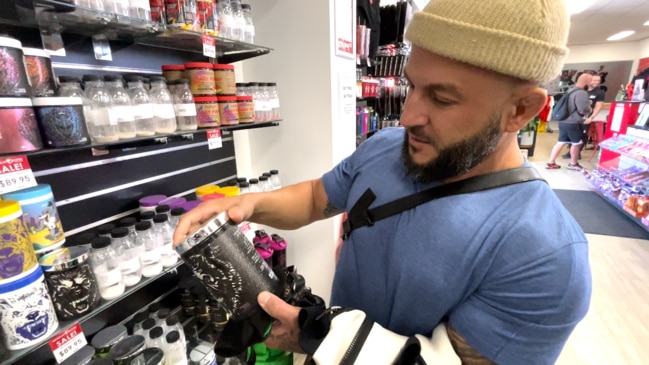
HOW ARE SUPPLEMENTS REGULATED?
Sports supplement foods that are not therapeutic goods (including protein powders, nutrition bars and sports drinks that do not contain high-risk substances) are not regulated by the Therapeutic Goods Administration.
These are regulated by the state and territory food enforcement agencies and must meet the requirements of the Food Standards Code, developed by Food Standards Australia New Zealand.
Sports foods are regulated under Food Standard 2.9.4 – Formulated supplementary sports foods, which requires certain information to be presented on food labels.
In Australia products are regulated by the TGA if they come within the definition of “therapeutic goods” under the Therapeutic Goods Act 1989.
On 23 September 2020 the TGA published a declaration clarifying that certain sports supplements are considered to be therapeutic goods. The declaration includes products that:
– are used, advertised or presented for supply to improve or maintain physical or mental performance in sport, exercise or other recreational activity
– contain high risk substances
– are in the dosage form of a tablet, capsule or pill.
A three year transition period until November 30, 2023 was given to comply with the new requirements for products that were pills, tablets or capsules (if they do not contain the identified as high risk substances).
Sports supplements that are therapeutic goods are generally regulated as listed medicines. The law requires that listed medicines:
– only contain low risk ingredients from a TGA approved list known as the Therapeutic Goods (Permissible Ingredients) Determination
– cannot contain substances in a Schedule to the Poisons standard (e.g. Schedule 4 substances that are for prescription only).
– are required to comply with Therapeutic Goods Order No. 92 – Standards for labels for non-prescription medicines. This legislation requires all active ingredients and their quantities be declared on the medicine label, consistent with the information provided on the ARTG.
– cannot make false, misleading or confusing claims or statements on their labels in relation to what they contain.
The TGA has a monitoring system and reviews some listed medicines in the marketplace for compliance with the regulatory requirements.
The TGA can take action to ensure consumer safety including the cancellation of the medicine from the ARTG or the issuing of infringement notices for non-compliant medicines.
Originally published as CODE Sports Investigations: Australia’s dangerous steroid culture is laid bare as manufacturers target youth



